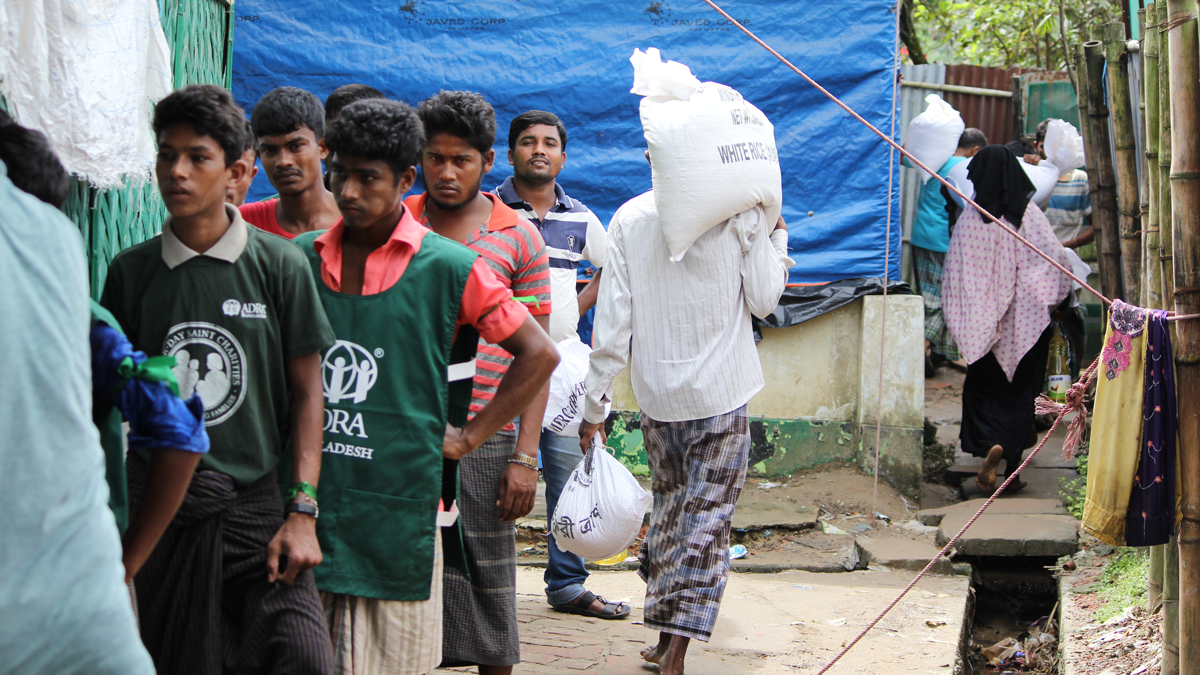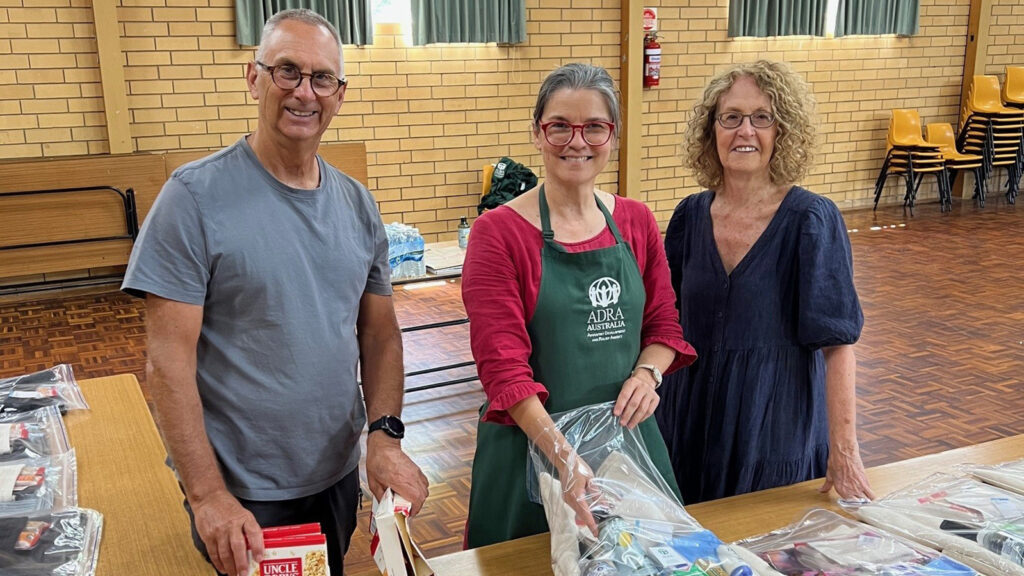Ethnic violence in Myanmar has forced more than 400,000 Rohingya refugees to flee their homes and seek safety in Bangladesh.
The United Nations has described this crisis as the “most urgent refugee emergency in the world”.
Many of those who have fled Myanmar arrived in Bangladesh with only the clothes they were wearing, and minimal food, after hiking for days or weeks to seek safety.
The Rohingya are considered the world’s most persecuted people. As a minority Muslim group in a majority Buddhist country, the Rohingya are stateless, with no citizenship or other basic rights. Some Hindu and Buddhist civilians have also been attacked in the conflict.
One of the Rohingya refugees who managed to escape is Samira. She cradles her grandson as she recounts the long, perilous journey. Samira says she fled after her four daughters were killed.
Tears roll down Samira’s face as she tells her story. She carried her grandson as she walked for days to reach the refugee camp at Cox’s Bazaar in Bangladesh. During the journey she traversed mountainous ranges and dense bushland.

While she is safe, for now, people like Samira face the prospect of life in muddy, crowded refugee camps—desperate for safety and lacking basic necessities like food and shelter.
The situation in the camps is dire. There is massive over-crowding and sanitation is poor. Bangladesh is still recovering from severe flooding after the monsoon season.
Another refugee, Helal, says he left Myanmar with his mother, his wife and three children.
“We fled with only the clothes we are wearing. I don’t know where my father is and if he is still alive,” Helal says. “My wife, my mother and myself carried a child each.”
“We have been in the camp for 10 days now,” Helal says. “We have got one black sheet of plastic and some rice.”
In response, ADRA has mobilised a team of experts in Bangladesh to provide urgent food and shelter for the displaced Rohingya refugees.
In early October, ADRA began distributing food parcels to 5400 households, which will benefit 32,400 people. Food parcels will be delivered every fortnight for three months.
Food parcels contain lentils, salt, sugar and oil to complement rice provided by the United Nations World Food Program (WFP).
Subsequent responses will provide food parcels for another 3800 households, while 10,000 temporary shelters and shelter kits will be distributed in coming weeks.
Brisbane-based Michael Peach, ADRA South Pacific Emergency Coordinator, spent two weeks in Bangladesh leading ADRA’s network response.
“The scale and size of the camps have to be seen to be believed. It is literally breath-taking to walk into these mega camps, hike to an elevated spot and look around at the thousands of tarpaulin tents stretching for kilometres in each direction,” Mr Peach says.
Despite extensive experience in humanitarian disasters, this crisis is unlike anything he has seen.
“I’ve responded to a lot of natural disasters and, while traumatic, they are generally a ‘positive’ experience in that you can start to respond, rebuild and move forward. There is a positive trajectory, from the initial stabilising phase (food, water and shelter) to longer-term recovery.
“With the Rohingya situation, it’s very different. It is forced displacement and there is no obvious solution. These people have suffered incredible human rights abuses and are now sitting in temporary accommodation, existing hand to mouth. There is no opportunity to establish a livelihood, generate income or become self-reliant. It is very frustrating, but we are making a difference in the lives of a few, at least for 3-4 months.”
Mr Peach described the Rohingya as a “beautiful people”.
“I saw so many examples of humanity at its worst, but also at its best. There was a strong sense of community amongst them, helping each other out and sharing what little they had.”
Britt Celine Oldebraten works at ADRA Norway but spent two weeks in Bangladesh collecting stories, photos and videos to highlight the crisis. As she prepared to return to Norway, she reflected.
“Time to go home. Meeting the many Rohingya refugees, hearing their stories and experiencing the desperate situations in the camps has been hard on the heart. My relief is that I can share them with you and together we can actually do something about it. We are not able to help everyone, but we sure can make a difference for very many families. I’ve been feeling tired the past days, but on my last visit to the refugee camp, just as we were about to finish the visit, I met a little refugee baby who gave me so many smiles. She reminded me that happiness and hope always find their way, no matter how difficult the situation might seem.”

While this crisis has been largely absent from mainstream news, the need is urgent.
Just $A120 provides a shelter kit and food parcel for one family. Your donation will provide urgent food and shelter for people like Samira and Helal.
To donate, visit adra.org.au/rohingya to restore hope during this crisis.






